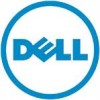Dell PowerVault 50F Dell PowerVault 51F 8-Port Fibre Channel Switch Insta - Page 85
nsShow, passwd, Table 4-12., nsShow Fields
 |
View all Dell PowerVault 50F manuals
Add to My Manuals
Save this manual to your list of manuals |
Page 85 highlights
nsShow The nsShow command displays local name server information, which includes information about devices connected to this switch, and cached information about devices connected to other switches in the fabric. The message There is no entry in the Local Name Server is displayed if there is no information on this switch, but there still may be devices connected to other switches in the fabric. The command nsAllShow shows information from all switches. Otherwise, text similar to the following example appears informing the user the number of name service entries that have been created with the title: The Local Name Server has n entries Type Pid COS PortName NodeName TTL(sec) Each subsequent line of output shows the value of each field as described in Table 4-12. There may be additional lines if the device has registered any of the following information (the switch will automatically register SCSI Inquiry data for FCP target devices): FC4s supported, IP address, IPA, port and node symbolic names. There are six major columns of information for each entry. Table 4-12. nsShow Fields Field Description Type The port type with one of the following values: N indicating that this is an N_Port NL indicating that is an NL_Port Pid The address ID of the port in hexadecimal. COS The Class of Service supported by the port. PortName The Port World_wide_Name. NodeName The Node World_wide_Name associated with the port. TTL The 'time-to-live' value of the entry; this is typically set to not-applicable (na) for a local entry. Occasionally, an entry might be a cached version of a remote port (that is, not directly connect to this switch). In that case, the value will be the number of seconds before the cached entry expires and gets deleted from the local database. Note also that a cached entry would have an '*' at the beginning. NOTE: Only local entries are displayed. passwd The passwd command is used to set user names and passwords. The command syntax is passwd [ "user name" ]. support.dell.com PowerVault 51F Commands 4-23















